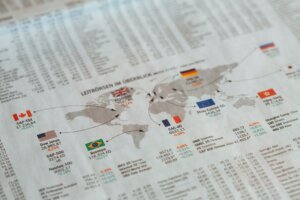What Are Public Policies and How Do They Affect You?
Have you ever wondered why gas prices fluctuate wildly? Why some medicines become cheaper while others disappear from shelves? Or why your child’s school suddenly changed its curriculum? The answer lies in public policy – the government’s blueprint for shaping society.
What Exactly is Public Policy? (And Why Should You Care?)
Public policy is like the operating system of a nation – a collection of laws, regulations, and government actions designed to solve problems and improve citizens’ lives. These invisible rules affect you from:
✔ The moment you’re born (birth registration policies)
✔ Through your education (school funding decisions)
✔ Into your career (labor laws and taxation)
✔ Until retirement (pension systems)
Governments create policies in order to:
- Stimulate economic growth (your job prospects)
- Protect vulnerable groups (your aging parents)
- Manage scarce resources (your water/electricity bills)
- Respond to crises (pandemic lockdowns)
The 6 Pillars of Public Policy (With Real-World Impact)
1. Economic Policy: The Nation’s Wallet Manager
Economic policy shapes the financial landscape of your daily life—from how much tax you pay to whether jobs are growing or shrinking. It influences inflation, interest rates, and the cost of essentials like food, fuel, and housing. Whether you’re a student, employee, or business owner, economic decisions made by the government directly affect your wallet and future opportunities.
Real-life examples:
- When the U.S. printed trillions during COVID (monetary policy), your savings lost value to inflation
- Vietnam’s 2022 tax cuts for SMEs meant local shops could hire more staff
- The EU’s carbon border tax makes imported steel more expensive, protecting local jobs
Smart economic policy helps create jobs, keep prices steady, and support long-term growth. Poor decisions, on the other hand, can lead to painful recessions, rising costs, or even economic crises like hyperinflation.
2. Social Policy: Society’s Safety Net
Social policy forms the foundation of everyday life, ensuring access to essentials like healthcare, education, and retirement support. It determines the quality of schools your children attend, how much you pay for medical care, and whether you’ll have a safety net in old age. Strong social policies build a more equal, stable, and resilient society for everyone.
Global comparisons:
- Norway’s free university policy creates highly skilled workers
- Singapore’s mandatory health savings (Medisave) keeps medical costs low
- Vietnam’s expanding health insurance now covers 91% of population
Shocking fact: The difference between U.S. and European healthcare policies explains why Americans pay 3x more for the same medicines. A major reason is due to policy differences—Europe negotiates drug prices centrally, while the U.S. largely leaves it to private insurers. This policy gap directly impacts household budgets and access to healthcare.
3. Environmental Policy: Planet Survival Guide
Environmental policy directly affects your health, safety, and future. It shapes the quality of the air you breathe, the sustainability of the food you eat, and your community’s resilience to climate threats like floods or heatwaves. As climate change accelerates, these policies aren’t just about nature—they’re about survival.
Policy in action:
- China’s electric vehicle subsidies created the world’s largest EV market
- Germany’s Energiewende policy transformed renewable energy adoption
- Vietnam’s plastic bag taxes reduced usage by 40% in major cities
Did you know? Bangkok is sinking about 2cm each year because of unregulated groundwater pumping, highlighting the urgent need for stronger environmental policies.
4. Defense & Security Policy: The Silent Protector
Defense and security policy isn’t just about military spending—it affects your daily life in subtle but important ways. Strong cybersecurity measures protect your personal data, while border security influences how quickly goods arrive and how much they cost. Whether it’s preventing online fraud or ensuring national stability, this policy quietly safeguards your lifestyle and economy.
Modern challenges:
- Ukraine’s defense policy failures enabled Russian invasion
- Japan’s cybersecurity upgrades protect citizens from data leaks
- Vietnam’s new cybersecurity law impacts how you use social media
Food for thought: That 10% increase in the price of imported cheese might seem random, but it’s often tied to changes in trade and security policies. New tariffs, stricter inspections, or border controls can all add costs that get passed on to consumers. It’s a reminder that government decisions behind the scenes can directly affect what’s on your plate.
5. Science & Tech Policy: Future Shapers
Science and technology policy sets the direction for innovation, research funding, and digital infrastructure. It plays a crucial role in deciding whether a country becomes a global leader or a passive consumer in breakthroughs like artificial intelligence, clean energy, or biotech. These decisions impact everything from national competitiveness to job creation and future-proof education.
Success stories:
- South Korea’s 1990s tech education birthed Samsung/LG giants
- Estonia’s digital ID system allows 99% of government services online
- Vietnam’s semiconductor training initiative creates high-paying jobs
Career tip: Learning skills aligned with your country’s tech policy = Better job security.
6. Administrative Policy: The Government’s Report Card
Administrative policy reflects how efficiently a government delivers public services, from processing business licenses to issuing property deeds. These policies directly affect everyday life and business operations—slow or unclear procedures can lead to frustration, delays, and lost opportunities. In essence, they serve as a report card on government transparency, efficiency, and responsiveness.
Global benchmarks:
- Singapore’s 3-day business registration vs. some countries’ 3-month process
- Denmark’s transparent budgeting allows citizens to track every tax dollar
- Vietnam’s ongoing administrative reform cuts red tape for entrepreneurs
Protest power: In 2023, French workers forced pension policy changes through massive strikes.
How to Be Policy-Smart in 3 Steps
- Follow the money – Track national budgets (usually published online)
- Connect the dots – See how global policies (like EU regulations) affect local prices
- Make your voice heard – Vote, join public consultations, or contact representatives
Your Policy Cheat Sheet
| Policy Type | Affects Your… | Real Example |
|---|---|---|
| Economic | Paycheck, savings | Interest rate changes |
| Social | Healthcare, education | Free school lunch programs |
| Environmental | Food/energy costs | Plastic bag bans |
| Defense | Privacy, product prices | Social media regulations |
| Tech | Job opportunities | AI development funds |
| Administrative | Business/legal processes | Online license applications |
Thought-provoking question: Would you pay 2% more taxes for better highways? That’s the kind of trade-off policymakers debate daily.
Why This Matters More Than Ever
In today’s interconnected global economy, decisions made in one corner of the world can ripple across continents in real time. A single U.S. interest rate hike can increase mortgage costs in countries like Vietnam. European Union climate regulations can make Southeast Asian exports more expensive, impacting jobs and local industries. Even life-or-death matters—like access to COVID-19 vaccines—were influenced by the policies of wealthy nations, determining who got doses first and who had to wait.
That’s why understanding global reports and regulations isn’t optional anymore—it’s essential. These policies shape the prices you pay, the opportunities you get, and the stability of your future. So next time you hear about a new regulation, pause and ask yourself: Who benefits? Who pays? And most importantly, how might this affect my family’s future?





Comments